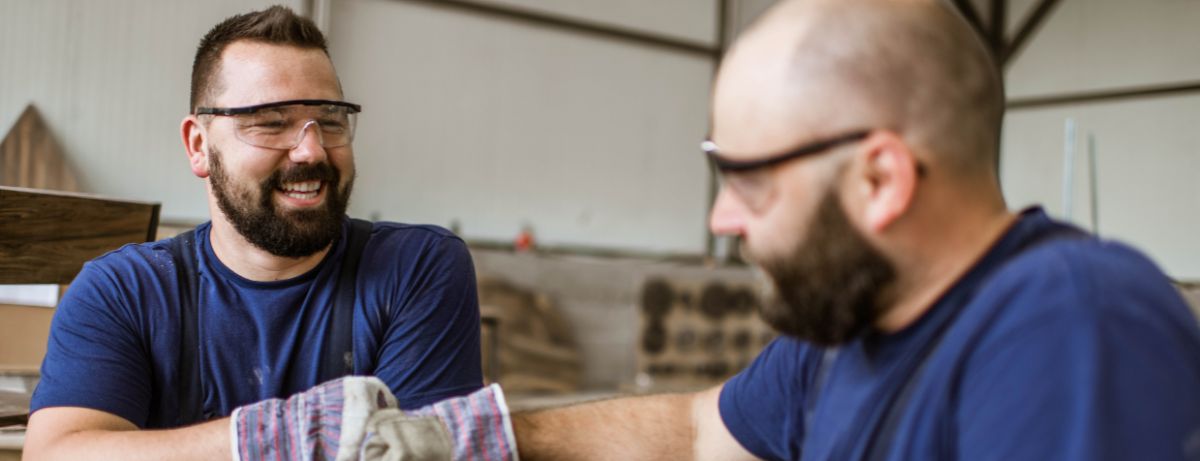5 Ways Kindness Improves Your Health

We all know the golden rule: treat others the way you want to be treated. While this is an old adage we learn from an early age, there are a number of real-life benefits associated with the way we treat others.
Kindness and empathy help us relate to other people and have more positive relationships with friends, family, and even perfect strangers we encounter in our daily lives. Besides just improving personal relationships, however, kindness can actually make you healthier. Here’s how:
Kindness releases feel-good hormones
Physiologically, kindness can positively change your brain. Being kind boosts serotonin and dopamine, which are neurotransmitters in the brain that give you feelings of satisfaction and wellbeing and cause the pleasure/reward centers in your brain to light up. Endorphins, which are your body’s natural pain killer, also can be released.
Kindness eases anxiety
Kindness also seems to affect the amygdala region of the brain which is associated with fear, anxiety and trauma. Studies show that oxytocin, a hormone known for its role in breastfeeding and reproduction but that is also produced abundantly when we’re being kind, acts directly on the amygdala to reduce its activity.
Kindness is good for your heart
Making others feel good can warm your heart, sure—but being nice to others can also affect the actual chemical balance of your heart.
As we know, kindness releases the hormone oxytocin and oxytocin causes the release of a chemical called nitric oxide in blood vessels, which dilates (expands) the blood vessels. This reduces blood pressure and therefore oxytocin is known as a “cardioprotective” hormone because it protects the heart by lowering blood pressure.
Kindness reduces stress
In our busy, always-on-the-go lives, we’re constantly looking for ways to reduce stress. It may be easier than we think.
Helping others lets you get outside of yourself and take a break from the stressors in your own life, and this behavior can also make you better equipped to handle stressful situations.
Affiliative behavior is any behavior that builds your relationships with others. According to a study on the effects of prosocial behavior on stress, “affiliative behavior may be an important component of coping with stress and indicate that engaging in prosocial behavior (action intended to help others) might be an effective strategy for reducing the impact of stress on emotional functioning.”
Kindness prevents illness
The hormone produced by acts of kindness and altruism also helps lower inflammation throughout the body. Inflammation is connected to a wide range of health issues and problems, from chronic pain and migraines to obesity and cancer. Every time the feel-good hormone is released, you lower your inflammation and subsequent health risks. It seems that the kinder you are, the more powerful the anti-inflammatory properties these acts possess.
Kindness may be the secret sauce to a healthy, happy life. Here are some simple ideas of what you can do:
- Hold the door for someone who has their hands full
- Smile at strangers and acquaintances
- Say “thank you” more often
- Do volunteer work
- Donate blood
- Carry packages for the elderly
- Give compliments to people you meet – don’t just think about how good someone’s hair looks, say it out loud
- Visit sick children in the hospital or send them a card
- Check in and take food to friends who are ill or having a difficult time
- Listen to someone taking a load off – don’t interrupt or try to give advice
- Donate secondhand clothes, furniture or toys
- Teach a skill to someone, like how to sew or play baseball
- Invite someone to dinner
- Let a pedestrian cross the street or give the car in front of you a gap
- Hold the elevator for someone
- Sign up to become an organ donor
- Give directions to someone who looks lost
- Share your food or snacks with a co-worker
- Offer to photograph tourists
- Buy a glass at a kid’s lemonade stand
- Help out a friend with a new baby. Bring her food or watch the baby so she can take a nap
- Welcome your new neighbors and show them around the neighborhood
Sources: Mayo Clinic Health System, Intermountain Healthcare, Cedars-Sinai
MEDICAL DISCLAIMER: The content of this Website or Blog is not intended to be a substitute for professional medical advice, diagnosis, or treatment. Always seek the advice of your physician or other qualified health provider with any questions you may have regarding a medical condition. Never disregard professional medical advice or delay in seeking it because of something you have read on this Website or Blog.
If you think you may have a medical emergency, call 911 immediately, call your doctor, or go to the emergency room/urgent care.
